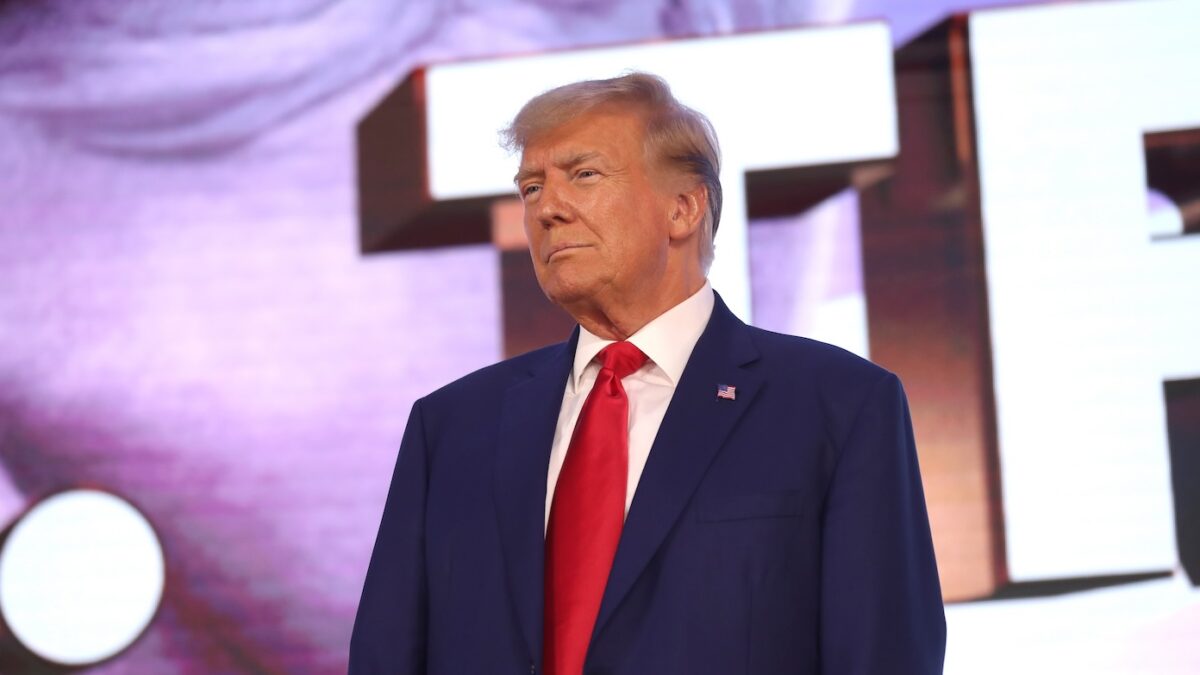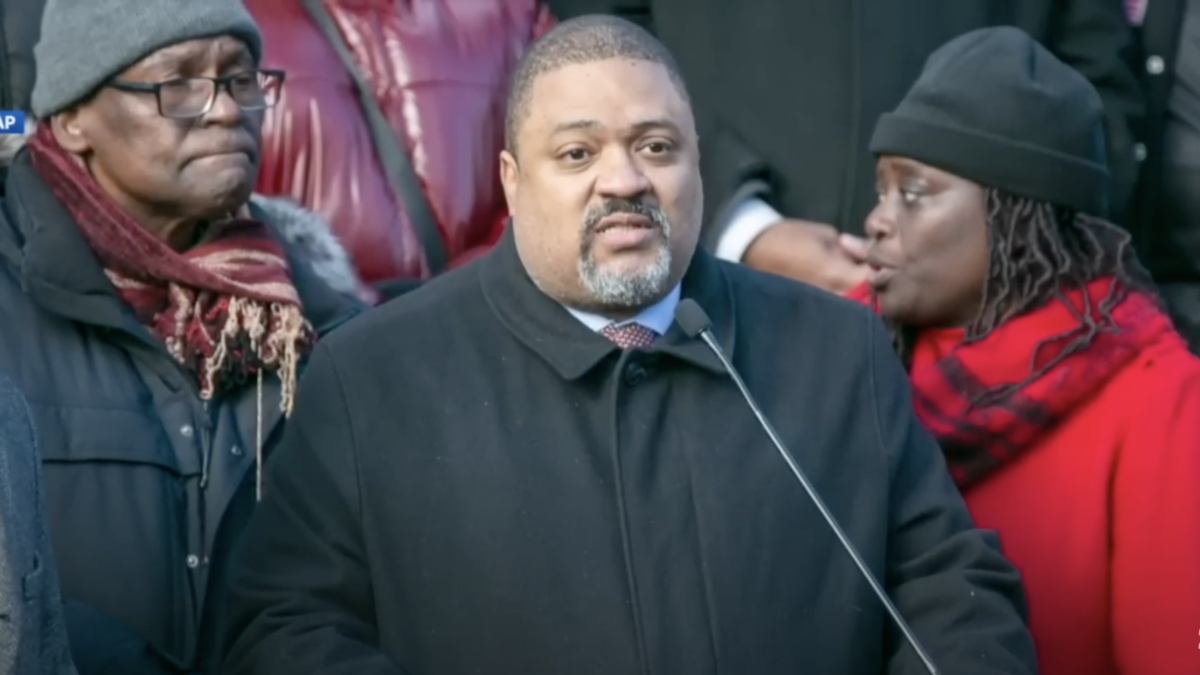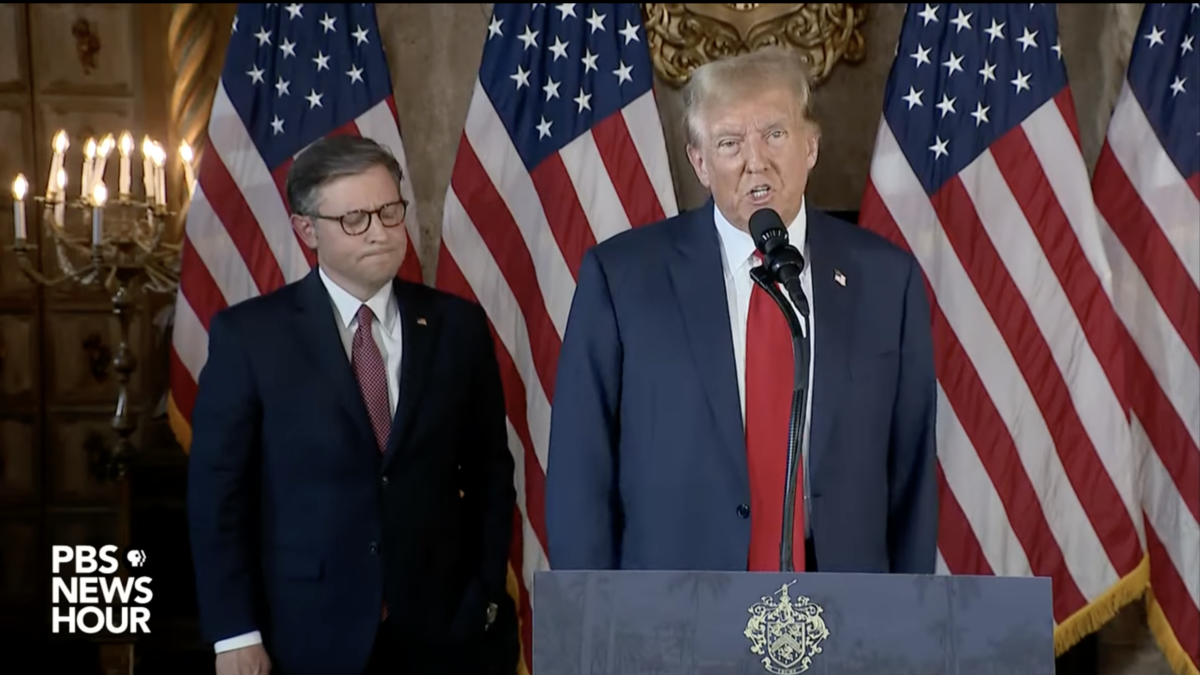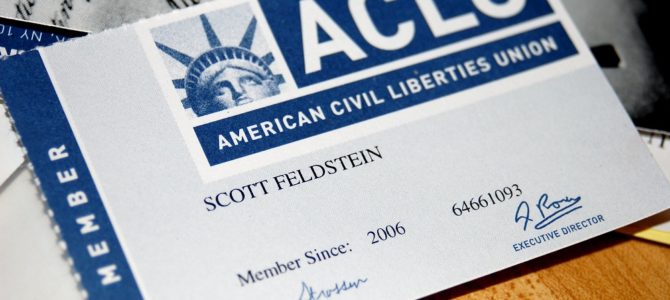
The American Civil Liberties Union once claimed it would defend the Bill of Rights “no matter how unpopular” its clients or positions might be. It’s hard to believe that these days.
In their zeal to fight the novel coronavirus, government officials are trampling civil liberties in ways this country has never seen. They started with banning large gatherings, such as golf tournaments and the NCAA basketball tournaments, but quickly progressed to more invasive measures, including the largest mass quarantine orders in American history.
The mass quarantine orders—which are usually called something innocuous like “safer at home” policies—are troubling. They vary from state to state, sometimes from county to county. They are riddled with exceptions, which vary in often arbitrary ways (for example, golf is allowed in Ohio but not in Michigan). They are vague and open-ended. They are not based on evidence but on “models” and amorphous phrases like “flattening the curve.”
Public Officials Are Going Gonzo
Indeed, the Los Angeles Times recently noted that California Gov. Gavin Newsom has released little data about his government’s response to the virus, keeping the public in the dark as it issues increasingly restrictive orders. Compounding such problems, Facebook has started blocking posts promoting protests of the “stay at home” orders, saying that “events that defy government’s guidance on social distancing aren’t allowed on Facebook.”
The government’s lack of transparency is appalling. So is the breadth of the quarantine orders, which are not based on individualized assessments of harm and impose criminal penalties for anybody who violates them. Rather than downplay the penalties, our leaders have highlighted them.
Los Angeles Mayor Eric Garcetti, for example, has called on people to report their neighbors for violating his quarantine order, promising “snitch rewards” for those who get caught. The L.A. city attorney responded eagerly. He has so far charged four “non-essential” businesses for continuing to operate.
In the tony coastal town of Manhattan Beach, law enforcement has issued 129 citations to people for violating the city’s social distancing ordinance, which requires six feet of separation and bans gatherings of more than two people. They face fines of up to $1,000.
Meanwhile, in a Denver suburb, police arrested a man, Matt Mooney, for violating social distancing orders when he played tee-ball in an empty park with his daughter.
The ACLU Knew This Would Happen
In less than two months, the United States has drastically expanded its police powers and control of things that are ordinarily none of the government’s business. So where is the ACLU when we need it? After all, it saw this coming.
In January 2008, it issued a report called “Pandemic Preparedness: The Need for a Public Health—Not a Law Enforcement/National Security—Approach,” which criticized governments for adopting pandemic preparedness plans that “ignored effective steps that states could take to mitigate an epidemic, such as reinvigorating their public health infrastructure, and instead resorted to punitive, police-state tactics, such as forced examinations, vaccination and treatment, and criminal sanctions for those individuals who did not follow the rules.”
The report identified numerous flaws in the pandemic preparation plans, including several that now flash across our television screens daily. For example, it chided the plans for assuming the worst-case scenario would occur, saying: “Worst case scenario planning encourages counterproductive overreactions in which law-enforcement techniques and drastic anti-civil liberties measures are used as the first resort, rather than the last resort.” The report also criticized calls to “ban public gatherings, isolate symptomatic individuals, restrict the movement of individuals, or compel vaccination or treatment.”
Pandemics breed fear, of course. And governments often respond to fear with toughness. But the ACLU’s 2008 report warned that saying “we must ‘trade liberty for security’ is both false and dangerous.” It emphasized that “the law enforcement/national security approach” to fighting a pandemic “converts the exception into the rule by treating everyone in the general population as a potential threat who warrants coercive treatment.”
The ACLU reiterated this criticism after the 2014 Ebola epidemic. In a December 2015 report titled “Fear, Politics, and Ebola: How Quarantines Hurt the Fight Against Ebola and Violate the Constitution,” the ACLU and the Yale Global Health Justice Partnership blasted governments for their response to the outbreak, which included forced quarantines of doctors who had worked in West Africa.
The report said, “quarantine is an intervention of last resort and requires an extensive analysis of disease-specific criteria.” It concluded that “quarantines and other restrictions on the movements of asymptomatic individuals are not narrowly tailored” to a compelling government interest “because there are a number of alternatives to quarantine that are equally effective at preventing the spread of Ebola, but that do not involve as severe a deprivation of individual liberty.”
ACLU Goes Missing in Civil Liberties’ Hour of Need
So where is the ACLU now? At most, it has said it is “monitoring” the coronavirus response. There is nothing left to monitor. Now is the time to act. But instead of standing up for the millions of people who are being deprived of their essential freedoms, the ACLU has focused on demanding the release of elderly and sick prisoners. In fact, the ACLU’s website currently solicits donations by promising to protect voting rights, prisoner rights, and reproductive rights.
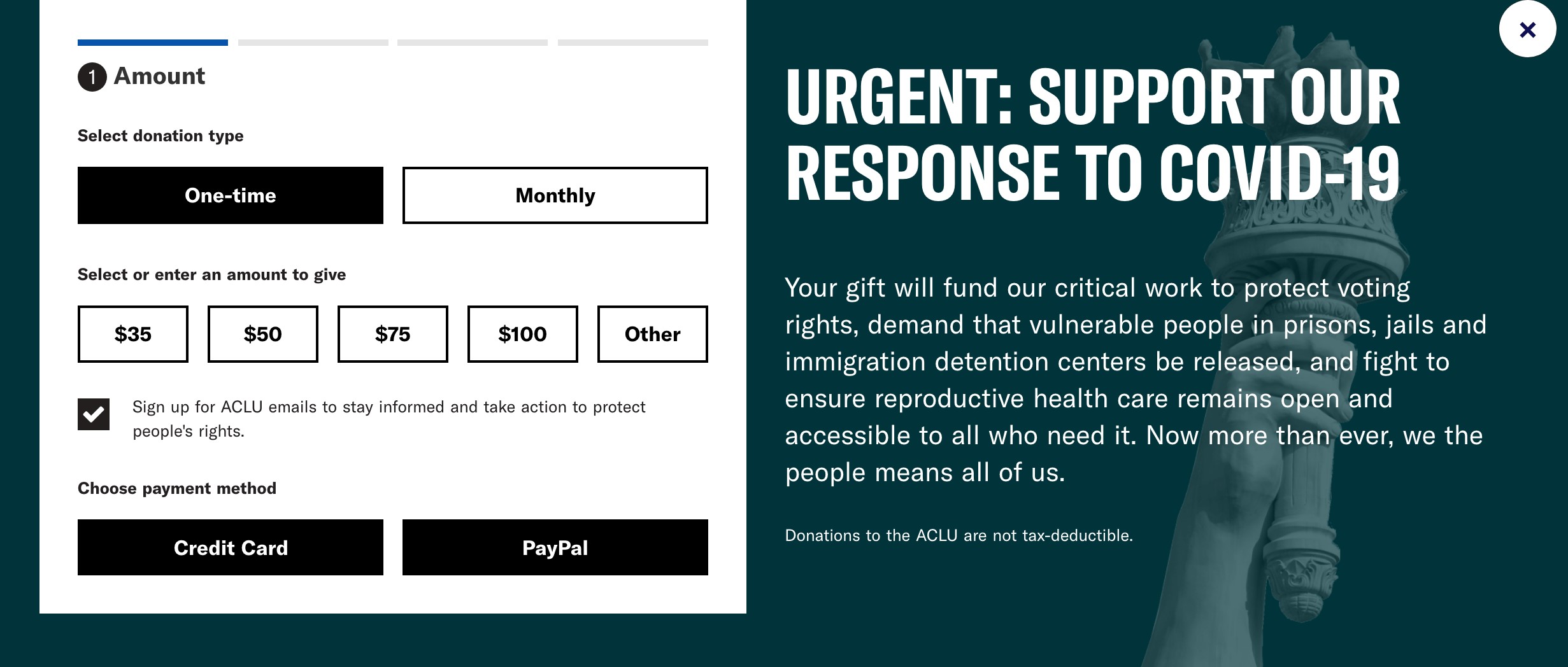
This shouldn’t be a surprise. Former board member Wendy Kaminer has criticized the ACLU’s transformation from a non-partisan watchdog focused on protecting liberal values, regardless of viewpoint, to a partisan agency more focused on leftist political talking points. Two years ago, Kaminer revealed an internal memo in which the ACLU said that “factors like the potential effect of the speech on ‘marginalized communities’ and even on ‘the ACLU’s credibility’ could militate against taking a case.”
To be fair, it has become harder to determine how far certain fundamental rights should extend, especially in certain settings (public schools, for example, an issue litigated in the “Bong Hits 4 Jesus” Supreme Court case Morse v. Frederick) and when two rights collide (Snyder v. Phelps, in which the Supreme Court held that the First Amendment prevents a court from imposing tort liability based on speech concerning a matter of public concern). But that is not a concern here.
ACLU Used to Fight for Lockdown Lifts
The ACLU knows how to litigate these issues. In 2014, during the Ebola outbreak, it filed a lawsuit against New Jersey officials on behalf of Kaci Hickox, a Maine nurse who was quarantined in the Newark airport after returning from a medical assignment in Africa. Hickox did not have any symptoms of Ebola, and was not ill when she arrived at the airport. Nonetheless, she was quarantined for 80 hours under a regional quarantine policy ordered by New Jersey Gov. Chris Christie and New York Gov. Andrew Cuomo.
The lawsuit accused New Jersey of violating Hickox’s rights by “detaining, isolating, and quarantining her without an adequate individualized assessment of the risk, if any, that Hickox in particular posed to the public health” and by “not using the least restrictive means available to protect the public health …”
Similarly, in 2007, the ACLU sued Arizona officials on behalf of Robert Daniels, a tuberculosis patient who had been quarantined in a medical facility for nine months. Daniels was quarantined because he did not wear a mask in public. At the time, Barry Steinhardt, the director of the ACLU’s Technology and Liberty Project, said: “Quarantine and isolation must be last resorts that are employed only after less restrictive alternatives have been employed and failed, or are impossible to use under the circumstances.”
Those challenges are a distant memory today. Indeed, rather than challenge the coronavirus quarantines, David Cole, the ACLU’s national legal director, recently told USA Today: “All kinds of constitutional liberties are being constrained right now. They are restricted because there’s a reason to restrict them. In a time like this, you have to defer substantially to public health experts.”
Cole apparently did not read the ACLU’s 2008 or 2015 reports. Or he read them but chose to ignore them because the ACLU sees a potential political benefit from the quarantines. That shows just how far the ACLU has fallen.
Now is not the time to trade civil liberties for politics, no matter how much one dislikes the current presidential administration. Future generations will not look kindly on the collective panic that is gripping our society. They will likely see this as the moment the ACLU’s hypocrisy finally caught up to it, to all our detriment.



